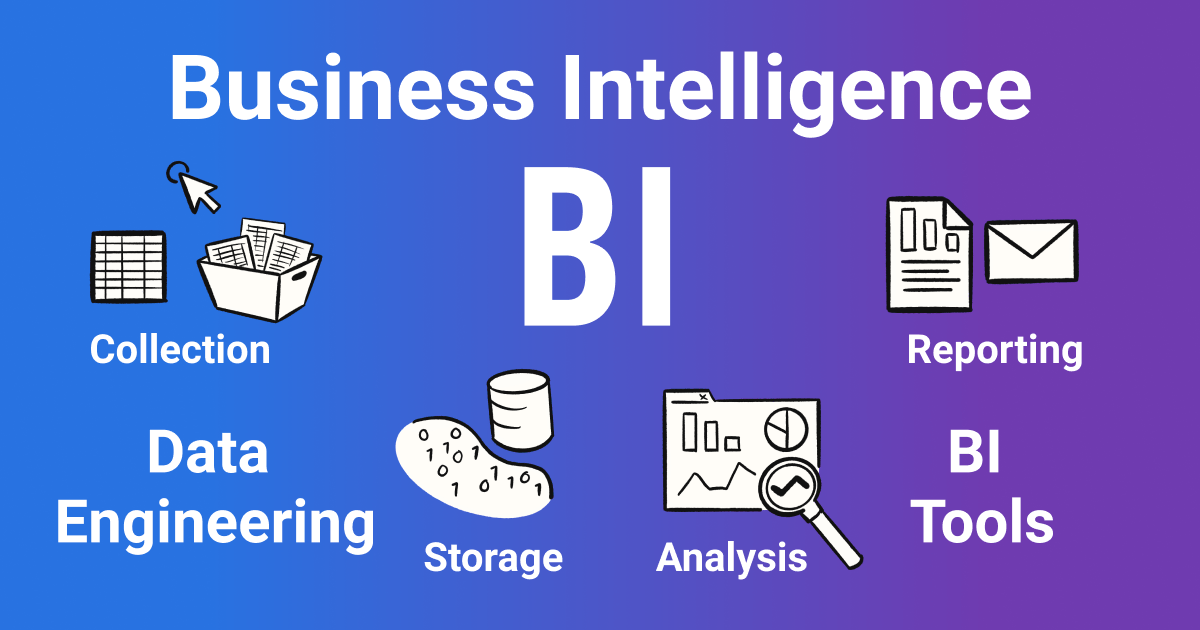Introduction
Corporate sustainability reporting has become increasingly important in today’s business landscape as companies are expected to demonstrate their commitment to environmental, social, and governance (ESG) issues. This reporting provides stakeholders with transparency into a company’s sustainability practices and performance, enabling informed decision-making and accountability. Business intelligence (BI) plays a crucial role in this process by providing organizations with the tools and insights needed to collect, analyze, and report on sustainability data effectively. In this article, we will explore the role of BI in corporate sustainability reporting and how it contributes to enhancing transparency, accountability, and corporate citizenship.
The Importance of Corporate Sustainability Reporting
Corporate sustainability reporting serves as a mechanism for companies to communicate their environmental, social, and governance performance to stakeholders, including investors, customers, employees, and regulators. By disclosing information on areas such as carbon emissions, energy consumption, diversity and inclusion initiatives, and ethical business practices, companies can demonstrate their commitment to sustainable development and responsible business practices. Sustainability reporting also enables stakeholders to assess the long-term viability and resilience of a company, identify areas for improvement, and hold companies accountable for their environmental and social impacts.
The Role of Business Intelligence in Sustainability Reporting
Business intelligence encompasses the processes, technologies, and tools used to collect, analyze, and present data to support decision-making. In the context of sustainability reporting, BI plays a critical role in several key areas:
- Data Collection and Integration: BI tools enable organizations to collect, aggregate, and integrate sustainability data from various sources, including internal systems, third-party databases, and industry benchmarks. By centralizing sustainability data in a single repository, companies can ensure data consistency, accuracy, and completeness, facilitating more robust reporting and analysis.
- Data Analysis and Visualization: BI platforms provide powerful analytics capabilities that enable organizations to analyze sustainability data and uncover insights into their environmental and social performance. By visualizing sustainability data through charts, graphs, and interactive dashboards, companies can communicate complex information in a clear and compelling manner, enhancing stakeholder engagement and understanding.
- Performance Monitoring and Benchmarking: BI tools enable companies to monitor key performance indicators (KPIs) related to sustainability and track progress towards sustainability goals and targets. By comparing performance metrics against industry benchmarks and best practices, organizations can identify areas of strength and weakness, prioritize initiatives for improvement, and drive continuous progress towards sustainability objectives.
- Predictive Analytics and Scenario Planning: BI platforms with predictive analytics capabilities enable organizations to forecast future sustainability trends, assess the potential impact of different scenarios, and develop strategies to mitigate risks and capitalize on opportunities. By simulating the outcomes of various sustainability initiatives, companies can make more informed decisions and optimize resource allocation to achieve their sustainability goals more effectively.
Case Study: How Company X Utilized BI for Sustainability Reporting
Company X, a global manufacturing company, recognized the importance of sustainability reporting in demonstrating its commitment to environmental stewardship and corporate citizenship. However, the company faced challenges in collecting, analyzing, and reporting on sustainability data due to the disparate nature of its data sources and the complexity of its operations.
To address these challenges, Company X implemented a comprehensive BI solution tailored to its sustainability reporting needs. The BI platform integrated data from various sources, including production systems, supply chain databases, and energy management systems, to provide a holistic view of the company’s environmental performance.
Using advanced analytics and visualization tools, Company X was able to analyze sustainability data in real-time, identify trends and patterns, and communicate key insights to stakeholders effectively. Interactive dashboards provided executives, investors, and regulators with transparency into the company’s sustainability initiatives, performance against targets, and progress towards sustainability goals.
As a result of its BI-driven approach to sustainability reporting, Company X was able to enhance transparency, accountability, and stakeholder engagement. The company achieved greater visibility into its environmental footprint, identified opportunities for resource efficiency and cost savings, and strengthened its reputation as a responsible corporate citizen committed to sustainability.
Conclusion
Business intelligence plays a crucial role in corporate sustainability reporting by providing organizations with the tools and insights needed to collect, analyze, and report on sustainability data effectively. By leveraging BI platforms, companies can centralize sustainability data, analyze performance metrics, monitor progress towards sustainability goals, and communicate key insights to stakeholders in a clear and compelling manner. As sustainability reporting continues to evolve as a critical aspect of corporate governance and accountability, BI will remain essential for companies seeking to demonstrate their commitment to sustainable development and responsible business practices.
FAQs
Q: What are some common challenges companies may face when implementing BI for sustainability reporting?
A: Common challenges include data quality issues, data silos, lack of standardized reporting frameworks, and the complexity of measuring and quantifying sustainability impacts. However, these challenges can be addressed through proper data governance, stakeholder engagement, and investment in technology and talent.
Q: How can companies ensure the accuracy and reliability of sustainability data used in BI reporting?
A: Companies can ensure data accuracy and reliability by implementing robust data validation and verification processes, conducting regular audits of data sources, and aligning with recognized sustainability reporting standards and frameworks such as the Global Reporting Initiative (GRI) and the Sustainability Accounting Standards Board (SASB).
